Culturing Creativity: Accepting Feedback
Our topic for this week in our ‘Culturing Creativity’ space was accepting feedback. As a writer, you want to improve and be the best you can be. But sometimes feedback came come across in a negative frame that causes us to put up our defenses. So how do you cope with feedback? Listen to hear our perspective.
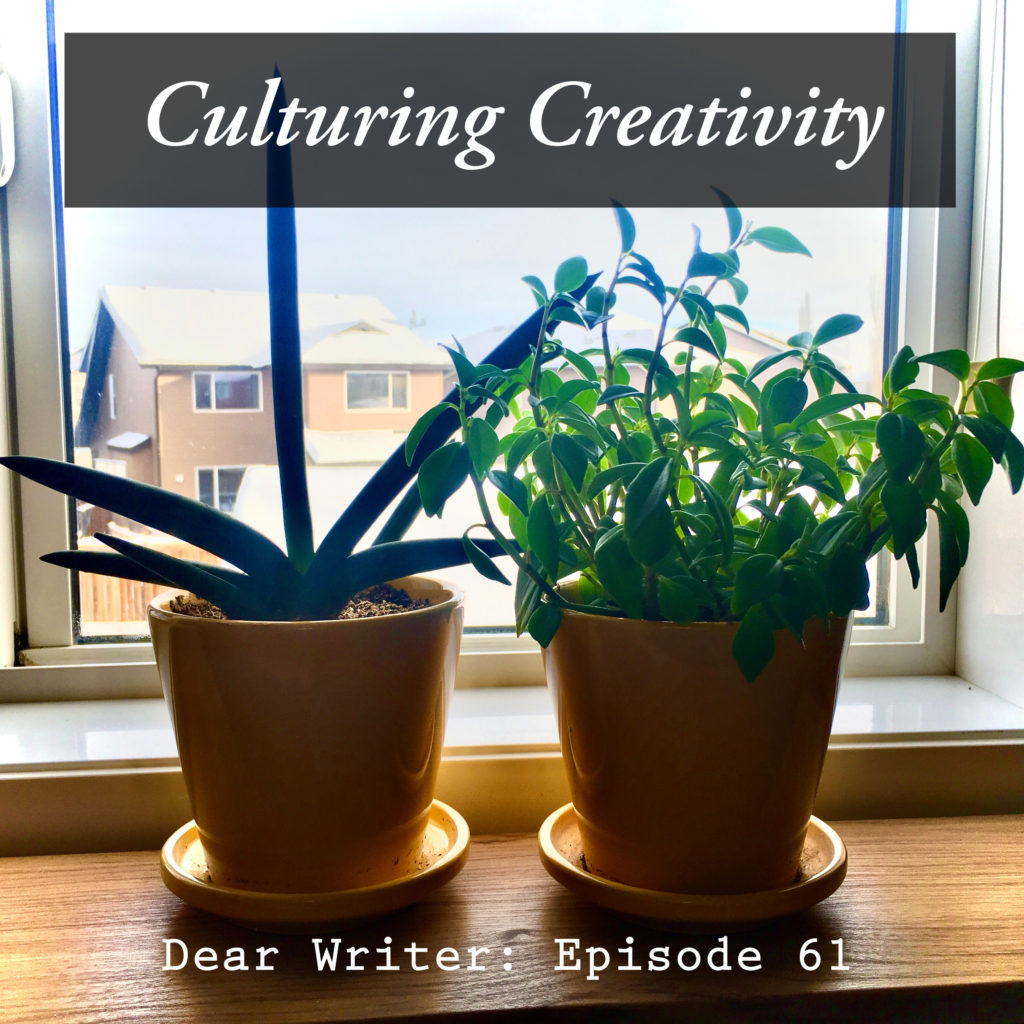
Episode Summary:
“Criticism, like rain, should be gentle enough to nourish a man’s growth without destroying his roots.”
I came across this quote while researching this article. And I think it encapsulates the theme of this episode very well. That’s because criticism is an interesting concept, especially for writers. On one hand you want to know what people honestly think of your writing so you can improve, but on the other you don’t want your confidence destroyed. Hopefully this episode will provide some insight on how we deal with accepting feedback, especially when it’s not what you want to hear. To begin, let’s start with an easy question. Why get feedback on your writing in the first place?
Ashley: It is one of the best ways to improve your writing (both your physical writing and the elements of your story structure. It’s hard to objective about your own work, so having other eyes looking over you work can be helpful. Luckily, as we co-write, we do have someone to look over writing early on. But it’s still different from having outside eyes on your work. Finally, I’ve done a couple of blog posts on similar topics. Check out Accepting Corrections, and Feedback, The Good The Bad and The Ugly.
Sarah: Firstly, it’s dependent on your goal as a writer. If you only ever plan to write for yourself, then sure, feedback might not be necessary as long as you are happy with your writing and enjoying the process. But, as soon as that goal changes to something more along the lines of ‘I want to share my writing with other people’, feedback becomes a crucial element in the process. To keep the attention of our readers, we need to understand what captivates them and how we can improve our writing so that they can see the world we’ve created as we see it. And, considering we can’t inhabit their minds the same way we do with our characters, the best way to do this is by asking them for feedback.
It can be difficult to take the first step and ask for feedback. What do we think are some reasons people don’t ask for feedback?
Ashley: I can only speak from my personal experience. When I think back to first sharing our work, I was terrified about people reading it. I didn’t want my husband to read it. Or, god forbid, my parents to read it. I was worried about what they would think of me, and the stories coming out of my head. And what if it was bad! Once I got over that. The second issue was finding someone to read it. Back then, I didn’t have the writing connections I do now so figuring out who to ask was stressful.
Sarah: This is a personal question, and people will have different answers for this. But for me I get scared, especially if I’m sharing it with someone who is close to me. There’s two things: the first thing I fear is that someone is going to hate every single bit of it, and tell me the whole thing needs to be rewritten. I can rewrite pieces, even whole chapters. I can deal with critique, but if someone were to tell me I needed to rewrite the entire book and that it was total rubbish, I think we all know how deflating that would be. It hasn’t happened yet, but it’s a very real fear, nonetheless! Secondly, I think it can initially be really hard to separate the work you’ve created from yourself, so any criticism of it feels intensely personal—especially if you’re like me and work in some of your own beliefs and your own traits into your characters. It can feel like an attack. I still struggle to share my work with my husband, because (let’s be honest) he’s really not good at sandwiching his critique in positive comments. When you add what I’ve said before into the mix, about it feeling personal, it typically ends in an argument—even though most of his critique is actually helpful once I manage to get some perspective on it. I think I struggle to find people to read it, too, because the people I trust to give me the most honest and helpful feedback are often the ones who are the most blunt! I find it easier to share my and Ashley’s work, not because I shift all the blame onto her (Ashley wrote that, not me!) but because I feel less personally involved with it and view it more as a piece of work than a part of me.
Everyone is different, and consequently, each writer likes to receive (and give) feedback differently. How do we prefer to receive feedback, and why?
Ashley: I like my feedback straight up. If something is bad, I like to be told. I don’t want to put work out that is not my best. It might sting a bit to hear but if someone notices things that can be improved on, I want to be told. However, there is a difference between someone saying “your work sucks” and “I don’t like this passage because there’s too much exposition and I lost sight of the plot.” In other words, I people to tell me why. Is the character unbelievable in that situation? Does the dialogue feel flat?
Sarah: You might have picked up from before that I like ‘feedback sandwiches’. I can deal with straight up feedback, but when giving and receiving feedback I tend to structure it more like, ‘I really liked this part. I think this part needs more work. Overall, these are the things that could be improved but I think you did this well.’ I think it softens the blow a bit! And, as Ashley said giving the why someone doesn’t like something is immensely important. Though, it’s not always easy to do, especially if readers aren’t writers themselves. A reader might be able to tell you ‘I don’t like this bit.’ Sometimes you have to be the detective to work it out: Why didn’t you like it? What did you feel when reading this bit? Was it the tone? The character? What was going on in this piece that didn’t work for you?
Beta readers and critique groups provide a good opportunity for receiving constructive feedback. But sometimes, the critiques they give you aren’t what you want to hear. What are some methods we use to deal with negative feedback?
Ashley: From my experience, no feedback is as bad as you think it is. After taking a moment to digest what they have told me, I always ask questions. I want to know exactly what they are trying to say. Is that section boring because you don’t like my work, or is my plot lost in too much description? Are you confused because my plot doesn’t make sense, or have I written that passage in a confusing fashion? Maybe they have just misinterpreted my writing (which is helpful feedback in itself – you don’t want your readers to be confused). Also, think about who is reading your work. If you write YA and the person who’s critiquing your work writes epic high fantasy, you might not be getting the feedback you need. However, from my critique group (we all write different genres), I’ve learned everyone gives different types of feedback, all of which is useful. Finally, remember, you can choose if you accept their feedback or not. You’re the author, if you don’t think what they’re saying holds water, don’t take it on board. You’re the author of your book.
Sarah: I won’t go in this in too much depth, because Ashley has already done a great job of covering this question. Ask for specifics. It’s rarely the case of the previous fear I voiced (the entire book needs to be rewritten). Find the specific things the reader doesn’t like and try to view it objectively—does this need more work? How can I make it better? Separate yourself from the work. As much as you may have put your heart and soul into this book, it isn’t you. You will create many, many things in your lifetime, and though they may reflect some of your thoughts and feelings, you continue to change and grow every day while your end product stays static. Writing is a skill you possess, and like all skills it needs to be honed. It’s not a belief or a quality that makes up your being.
What about that self-doubt? Getting feedback can be really difficult for writers. I think this is because writing is a very personal pursuit. Often, the work we put out to the world has elements of ourselves so it can be painful accepting criticism. Do we ever have self-doubt when receiving feedback, and how do we deal with it?
Ashley: I used to be really self-conscious of my writing. And I used to take feedback to heart. Like every criticism was a criticism of me personally. But that all changed with my academic work. After one particularly brutal piece of feedback where the person had literally crossed out three full pages of my writing and re-written it, I realised that everyone has their own style, and some people are just picky. Just because one person hates what you’ve written, another might think differently. So now, the bouts of self-doubt are less frequent. They usually raise their ugly heads when I have other issues going on in my life. I will often take a break. Take a couple days off writing and then revisit my writing with a calmer and clearer head. Usually, it’s not as bad as I thought it was.
Sarah: I’ve talked about this quite a bit already, I think it’s evident that I do have a fair amount of self-doubt! I can look at something one day, think it’s absolutely terrible, and then the next day in a different frame of mind read over the same thing and realize it’s actually brilliant. This is where I find feedback immensely helpful, because my mind likes to play tricks on me and I struggle to see sometimes whether I’m being too hard on myself, or too soft. More times than not I’ve been far too hard on myself and am genuinely surprised at receiving positive feedback. When it’s not positive, it usually makes it clearer why I didn’t like it and what needs to change. So, I guess you could say I rely on feedback as a way to clear the muddy waters of self-doubt and cut to the truth.
One of the ways of getting better at receiving feedback, is giving feedback. What are some tips we have for giving feedback in a helpful and constructive way?
Ashley: I always try and give reasons for the feedback, both the positive and negative. I make sure to highlight things people have done right, and why. The same is true with my critiques. I like to say what is wrong, and why. The more I give feedback, the more I am able to understand the feedback I am given.
Sarah: I sort of explained this before when I talked about the feedback sandwich! I don’t want to cut people down, but I do want them to improve and reach their potential. So I try to explain why I didn’t like a piece. In rare cases I will give examples of how something might flow better, or make a bigger impact. But I also take note of the things they’ve done well—often there are little pieces worked into the writing that I’m like, ‘wow! I would have never thought to describe it that way!’ And I comment on these things because it’s equally important to know where your strengths lie.









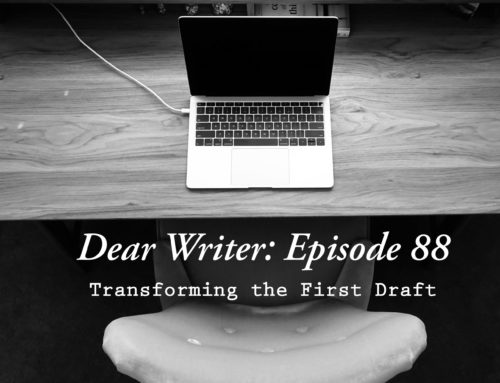
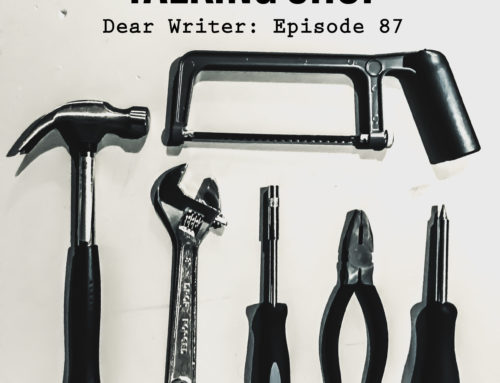



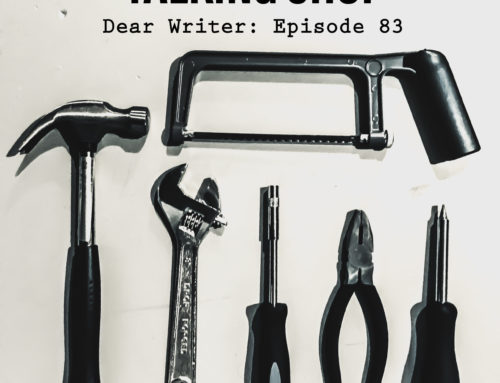


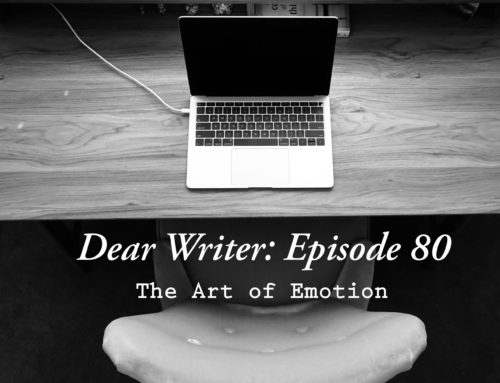
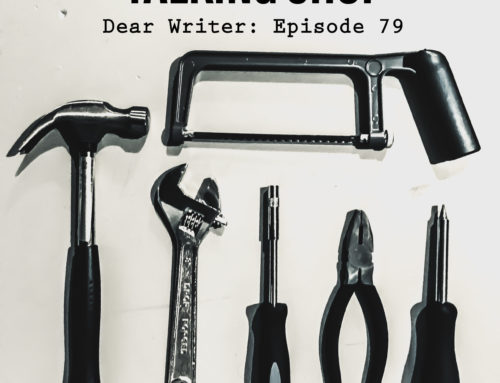


Leave A Comment